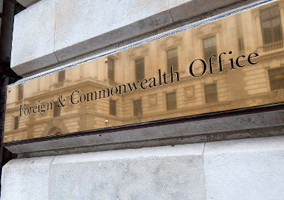The Charity Commission has issued a formal regulatory alert, urging international aid charities to address weaknesses in preventing exploitation and abuse.
The Commission contacted more than 5,000 charities working overseas, telling them that “transformative change” is needed to “achieve more effective safeguarding arrangements”.
The alert states: “Positive improvements made in safeguarding arrangements to date risk being undermined by some continued weaknesses.”
It follows an analysis of recent serious incident reports submitted to the regulator, which identified specific areas of weaknesses or risk around safeguarding in international aid charities.
The regulator has seen increases in serious incident reports on safeguarding matters by charities, which it says “indicates improved reporting and complaint mechanisms”.
From 2019 to 2020 the Commission received 5,730 reports of serious incidents, of which 3,411 related to safeguarding. This marks a nearly 40% increase on the previous year.
‘We continue to see cases of harm perpetrated by people in positions of power in charities working overseas’
Helen Stephenson, chief executive of the Charity Commission, said: “No-one should ever be exposed to abuse or exploitation, but when people are harmed while in the care of a charity, it undermines the very meaning of charity. The public expect charities to keep the people they care for safe from harm, and to place the highest priority on the needs and interests of vulnerable people.
“I know that many international aid charities, doing vital work in challenging environments, have worked hard to improve their safeguarding practices over recent years. But we continue to see cases of harm perpetrated by people in positions of power in charities working overseas.
“More needs to be done. Leaders of international aid charities need to ensure they have the systems and structures in place that prevent and root out harmful behaviour and empower victims and survivors to raise concerns. But systems alone are never enough – they need to be underpinned by leaders who place the highest priority on keeping people safe. There is simply no room for complacency.”
Take a ‘survivor-centred’ approach
The regulator says charities need to make easier for recipients of aid to report allegations of misconduct and abuse and take a “survivor-centred” approach to handling incidents.
The alert also states that effective safeguarding is never complete, and “all charities, in the aid sector and beyond, must be alert to the risk of sexual harassment, exploitation and abuse and should foster a culture committed to rooting it out”.
As well as advising charities to launch their own timely investigations into allegations, the alert recommends that organisations consider joining the Misconduct Disclosure Scheme “to stop perpetrators of sexual misconduct from moving around the sector undetected”.
Just a handful of UK charities are currently part of this scheme, according to data gathered by Civil Society News this March.
The Commission also recommends trustees explore if gender and diversity imbalances on their own board and senior management “are potential safeguarding risk factors which require proactive management”.
Several household-name charities have recently been investigated by the Commission over safeguarding failures.
The Commission has been monitoring emerging issues relating to charities operating in the Democratic Republic of the Congo, as part of standard regulatory oversight.
In February the Commission lifted statutory supervision of Oxfam GB after the charity was seen to have significantly strengthened its approaches.
It recently sacked three members of staff after an investigation into sexual misconduct, bullying and nepotism. The employees all worked for Oxfam in the Democratic Republic of Congo (DRC).
Related articles












